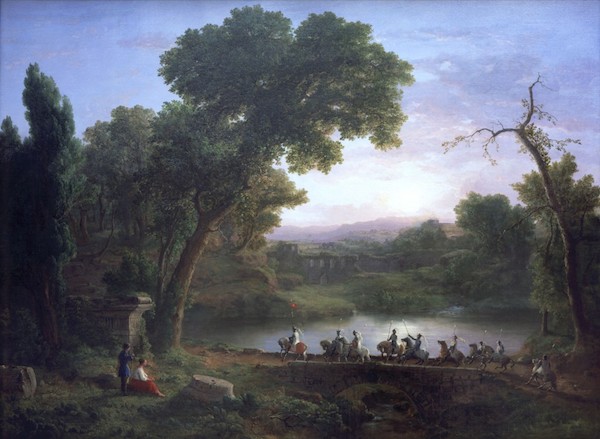
[One of 50 articles written and published for Demand Media]
The Crusades were a series of military conflicts spanning two centuries, from 1095 – 1300. The First Crusade began as a bid by Pope Urban II to wrest Jerusalem and surrounding areas from Muslim rule (sometimes referred to as the East, or Asia Minor) and back under Christian control (the West). The First Crusade was successful, but the seven Crusades and assorted minor battles afterward fared poorly, with lasting consequences. The aftermath altered attitudes toward the Roman Catholic church and encouraged skepticism. This diluted church authority, led to the Protestant Reformation and the secular ideas of the Renaissance.
Winners
In the West, merchants in Italy’s port cities on the Mediterranean Sea grew rich as middlemen moving troops and supplies to the Levant, while also shipping goods like rice, coffee, sugar and cotton cloth from the Muslim world to Europe. Their wealth, together with the increase in travel and commerce, would become critical to sparking the Italian Renaissance and early thinking about secular governance in the 14th century.
In the East, the Islamic world was united by the sultan Saladin, attaining military supremacy following a period of internal division. Secular governments ruled by sultans and emirs already existed in this era, but the division of power between political and religious leaders (caliphs) was in transition. Military and economic matters became largely secular, while social administration was primarily governed by Sharia law.
Losers
The Crusades’ many military defeats cost the Catholic church substantial respect and credibility, weakening the papacy. Perceptions of corruption and turmoil in the church continued, leading to the Western Schism in 1378. Cardinals elected two different popes, triggering a political crisis and warfare. The aftermath emboldened kings and spurred resistance to church authority, paving the way toward a more secular worldview in the West.
An incalculable — and for Christians, self-inflicted — loss of world knowledge occurred when Norman (Christian) crusaders burned the Imperial library during the Sack of Constantinople in 1204, destroying both secular and religious literature. This assault on the eastern center of Christianity marked the end of the Byzantine empire, the last vestige of the Roman empire wherein Christianity first emerged.
Consolidation
Despite ongoing war and dissension, the time of the Crusades — known as the High Middle Ages — were also a period of consolidation and expansion for secular and religious spheres alike. Greater stability emerged in legal and financial institutions, communication systems improved and political organization gained sophistication. Church bureaucracy grew to include the papal curia, a variety of organizations that helped administer the Roman Catholic church.
Inquisition
Doctrinal compliance and consolidation of church authority was accomplished through the medieval inquisition, beginning around 1184 through the 1230s. Deviation from official church doctrine became subject to a series of aggressive, locally-based efforts to eliminate dissent and heretical views. Bishops and papal emissaries were given wide latitude — including torture — to root out heresy, but as church representatives, they were not permitted to kill. The job of burning unrepentant heretics at the stake was conducted by secular authorities. Little imagination is needed to perceive the effect on secular thought.